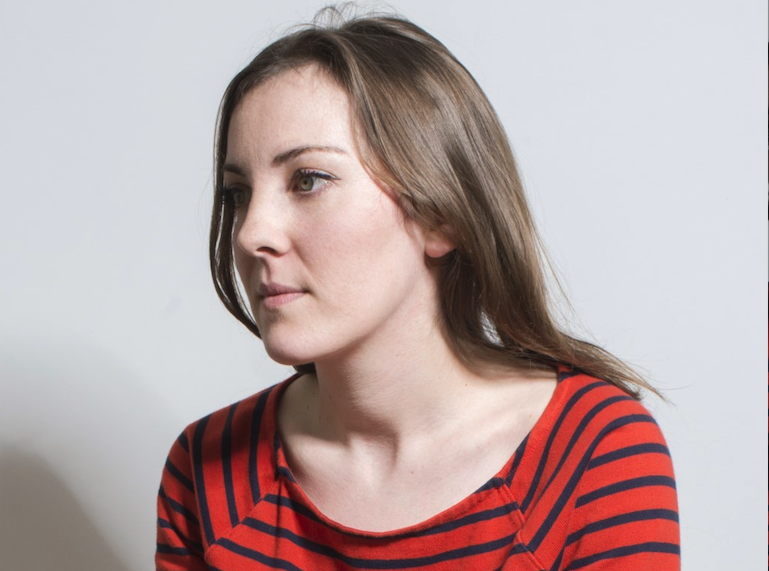
Léonor Serraille, director of "Jeunne Femme"
Jeune Femme received the 2017 Caméra d'Or, the highest distinction given to a first film at the Cannes Film Festival. Young director Léonor Serraille had only one medium-length feature to her credit, Body, already spotted in several festivals. But the power with which she tells Paula's story, who, abruptly misled, finds the strength to take control of her life, is incredible and unprecedented. Véronique Le Bris met with a very focused director, more interested in the job being well done than in the limelight.
Internationally, your film is called Montparnasse-Bienvenue. Why ?
This is the neighborhood where Paula, my heroine, lives. But some territories have already changed the title to Young Woman.
In what way did the Camera d’Or that you received at the 2017 Cannes Film Festival change the life of your film?
The real surprise was that it was selected by the Un Certain Regard competition at the Cannes Film Festival. It’s a low budget movie, made by beginners. My main ambition was that I would like this film and that the whole team could be proud of it. But, it seems that something happened between Sandrine Kiberlain, the president of the Caméra d’Or jury, and Paula.
So this prize is an incredible opportunity, right?
It’s a gift I do not want to think about. However, it made the film more visible, which is very positive. It has been sold in more than 20 countries in Japan, Mexico and is requested in many festivals.
Did you catch what appealed to the Japanese or Mexicans?
A Japanese journalist explained to me that the relationship with Paris was the main character of the film. It breaks the ideals people have of this city. She did not understand why I was so harsh on Paris. Otherwise, it’s funny that Paula goes back to Mexico.
Your heroine even says "Paris is a city that does not like people". Do you really think so?
I didn’t write this sentence. Laetitia Dosch, who plays Paula added it. And it became one of the most important quotes of the film. When I arrived in Paris, where I lived in the attic at Montparnasse-Bienvenue, I really felt the violence of the capital. You don’t feel loved in Paris.
You also explain that the public spaces inside the city don’t belong to women and men in the same way. What do you mean ?
That everything is more dangerous, there are more negative connotations when you are a woman. Women always have to control themselves, which is not the case for men. As a result, it restricts the possibilities. Instead of occupying space, women go on as walk-on parts of life.
How did this influence you in building Paula’s character?
I did not want Paula to play a walk-on part of life, I wanted her to take her time, to move in the city as a man would.
How did you find Laetitia Dosch, who is extraordinary in this film?
Through intuition. I wanted a new face. I had noticed her in La Bataille de Solférino by Justine Triet, then in small roles in La Belle Saison by Catherine Corsini and Mon Roi by Maïwenn. I had the feeling that she was the right actress for the role. I liked the way she speaks. We didn’t do any tests but I watched her videos on the internet.
How did you work together?
My script is very written, very detailed. We spent days analysing the text, discussing each scene. Once we agreed on the script, we shot fast, with few shots, just a few nuances in the acting to keep our options open for the editing.
Why are you surrounded by a predominantly female team?
I find it important that there are women in decisive positions. In this particular case, they liked the subject and the heroine. However, I have a hard time measuring how different the film would have been with a more masculine team.
Was it easier to write dialogues for a female character?
No. It was actually quite difficult to write good dialogues and find the right words for Paula’s character.
Do you already think about your next project?
I can’t wait to get back to writing. I’m hesitating between two scenarios and I have to make up my mind. What I can already tell you is that it will be something very different. For Jeune Femme, I wanted the shape of the film to resemble Paula. I wanted her to be impulsive. From now on, I want scenes that last, with long dialogues.
Jeune Femme by Léonor Serraille with Laetitia Dosch, Gregory Monsaingean, Léonie Simaga, Nathalie Richard ...
French release: November 1st, 2017.
Photo Credit Patrick Gaillardin

